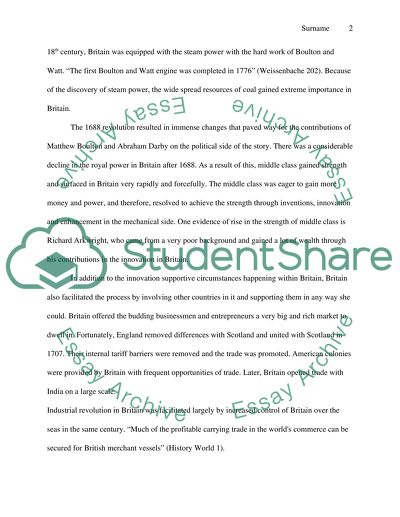Retrieved from https://studentshare.org/environmental-studies/1404924-6-why-was-there-widespread-innovation-in-britain-in-the-eighteenth-century
https://studentshare.org/environmental-studies/1404924-6-why-was-there-widespread-innovation-in-britain-in-the-eighteenth-century.


